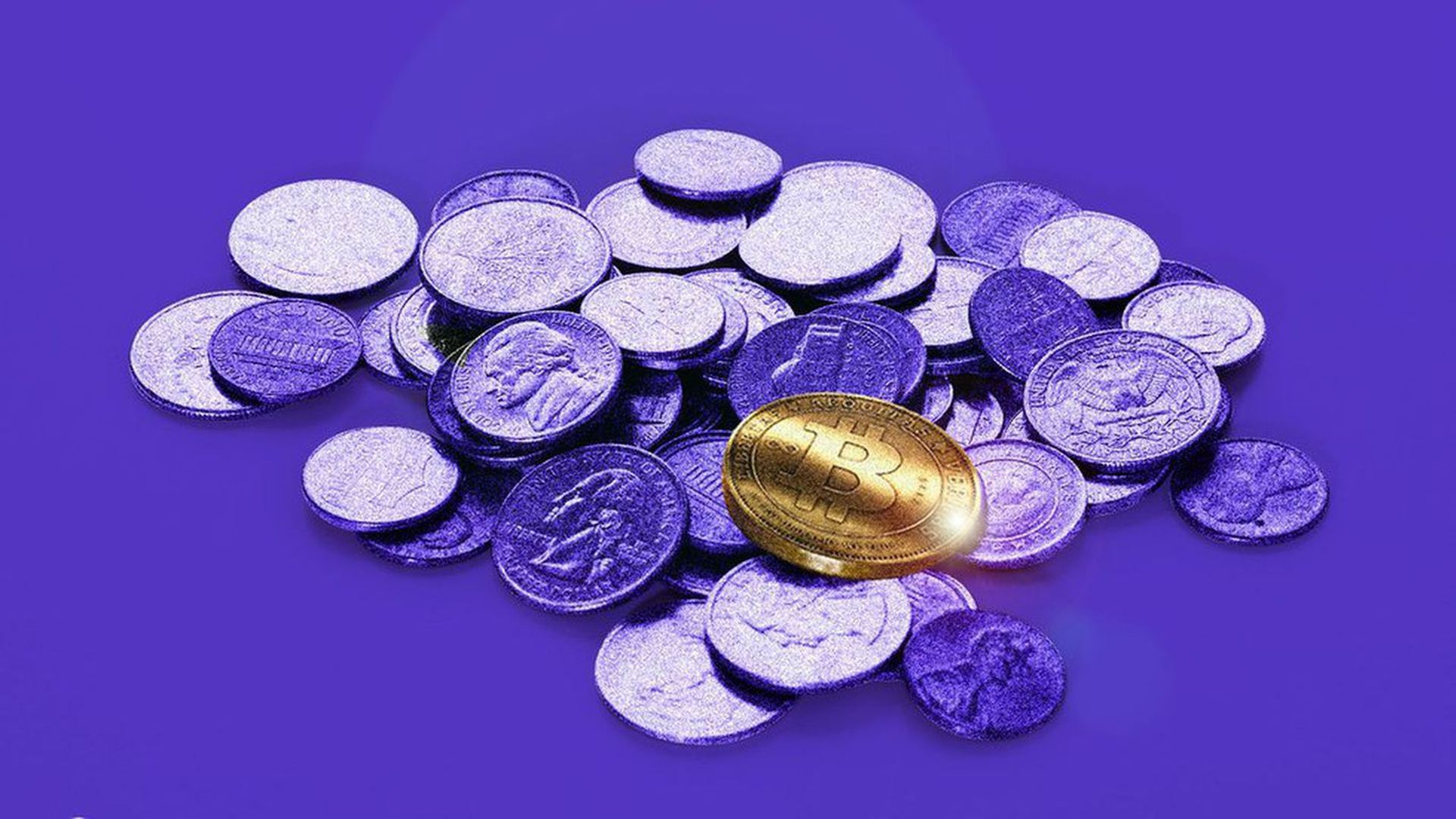The fuss about BitClout
Add Axios as your preferred source to
see more of our stories on Google.

Illustration: Rebecca Zisser/Axios
Some of Silicon Valley’s biggest VCs are backing a buzzy new project—and Crypto Twitter is up in arms about it.
Why it matters: BitClout has divided even the industry's top investors, with some openly backing it in hopes it's the next social-media-on-the-blockchain success, while others are staying far away.
- The cap table includes some of the biggest names like Sequoia, Andreessen Horowitz, Coinbase Ventures, Winklevoss Capital and a host of celebrities.
- Still, some are very wary. You can currently put bitcoin into the site but you can’t withdraw it. The project's lead founder says his well-connected backers might help exchange listings materialize soon.
How it works: BitClout takes the profiles of popular Twitter personalities and ascribes a dollar value to their output. Participants can then buy and sell various “Creator Coins” with bitcoin (and ideally profit).
- At the top of the pack is Elon Musk, whose unclaimed profile on the site is commanding $70,825 per token. A run-of-the-mill crypto influencer is fetching around $500. (Chamath Palihapitiya, who briefly flirted with running for California’s governorship, appears to be the priciest claimed account at $42,820 per token.)
Yes, but: No one gave permission for their Twitter brands to be monetized.
- While BitClout's pseudonymous founder, Diamondhands, told CoinDesk’s Brady Dale that the site “creates innovative ways for creators to monetize" and provides "a new business model that’s not ad-driven anymore,” this argument has been unpersuasive to many prominent members of the crypto industry, who are generally salty about their Twitter profiles being scraped (and monetized) without their consent.
- At least one unhappy technologist whose profile showed up on BitClout without his permission sent the company's alleged real-life leader a cease-and-desist letter on Tuesday.
Moreover: While you can currently put bitcoin into the site (about $184 million, according to an unconfirmed blockchain address), you can’t withdraw it, which some skeptics point out as a red flag.
The bottom line: Not needing permission is a tenet of the crypto ecosystem. Centralized parties shouldn’t be able to lord over online commerce. That said, BitClout is rubbing some – whose reputations are now on the market – the wrong way.
Go deeper: What Is BitClout? The Social Media Experiment Sparking Controversy on Twitter (Coindesk)
